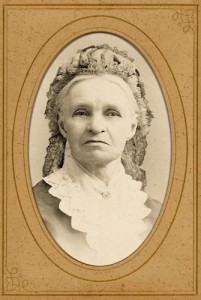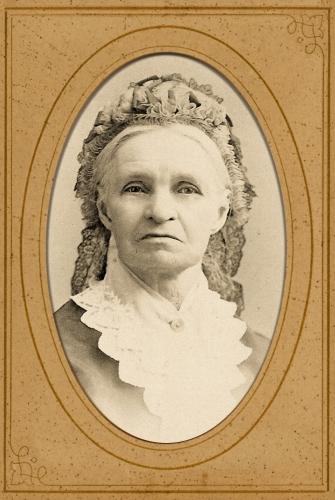By Diane Hassan for the CTPost.com

Almira Ambler, Civil War Nurse – Danbury Museum & Historical Society
…that Almira Ambler, wife of the anti-slavery Baptist minister Edward C. Ambler was one of the first women to volunteer her services as a nurse and one of the first women to receive a pension from the Federal government for her service.
Her obituary in The Danbury Evening News printed on June 29, 1891, stated that “Mrs. Ambler was always expected to say something,” a remark made in regard to her role as one of the first members of the Relief Corps of the GAR [Grand Army of the Republic]. Apparently Almira’s need to speak up on behalf of our wounded soldiers began much earlier, which has been seen by a certain “Letter to the Editor” published in The Jeffersonian on July 20, 1864, and recently uncovered in archives of the Danbury Museum & Historical Society. Almira’s husband served with the 67th Pennsylvania regiment as chaplain. The Amblers both rest in Wooster Cemetery, along with thousands of other veterans who are the sons and daughters of Danbury.
Thank you Almira….for your service, your courage and, most especially, for providing a voice for our veterans so very long ago.
The Jeffersonian, Wednesday, July 20, 1864
Mr. Editor – Will you or some of your correspondents please tell why a wounded man cannot be admitted into a sleeping car?
I was procuring my ticket at the depot in Washington, on the 28th of June, when a gentleman stepped up and procured two tickets for, I think, New York. After paying for them he said he also wished to secure two berths in the sleeping car, – one for himself, and the other for his son, who was badly wounded. The agent immediately said: “He cannot be admitted. They do not allow any wounded men in the sleeping car.” The father said, “he must have it.” The agent replied, “You cannot, for I have no authority to give it to you.” “But,” said the father, “my son is badly wounded and I must have a car where he can lie down.” “Well,” said the agent, “you had better see the conductor.” The grieved father turned away, probably to see if he could have the privilege of taking a noble, self-denying son home on the sleeping car of one of our public railroads – I turned in sadness from the office to ask myself this question. Is it true or am I dreaming?
When I was in Philadelphia in May last I saw, and helped dress, the wounds of hundreds on their way from Washington to New York who had traveled all that distance sitting on benches, without even backs to lean against. Is there no remedy for this? Are the resources of our once rich country departed?
If not, I hope some way will soon be devised to make the homeward journey of the defenders of our firesides more comfortable. It can, and should be done.
Mr. Editor, I know that by thus writing I shall incur the displeasure of those that control these things, but if I can make the journey home of our wounded soldiers a little easier, I can well afford to bear it all.
With many wishes for your success in your noble work, I am respected sir, your co-laborer in the Hospital.
Almira Ambler
Annapolis, July 4, 1864
Diane Hassan is an independent researcher, genealogist, and writer currently working as a Research Specialist for the Danbury Museum & Historical Society.
© CTPost.com. All rights reserved. This article is excerpted and originally appeared on Archive Archaeology








